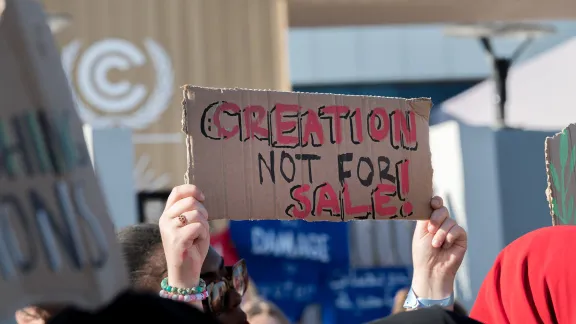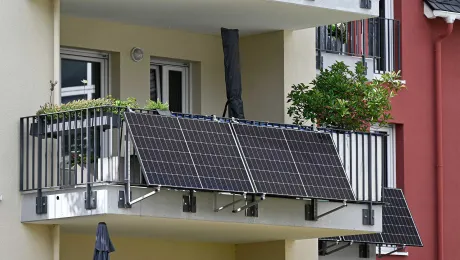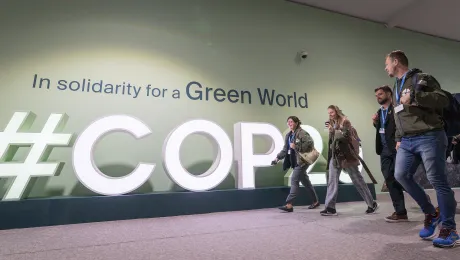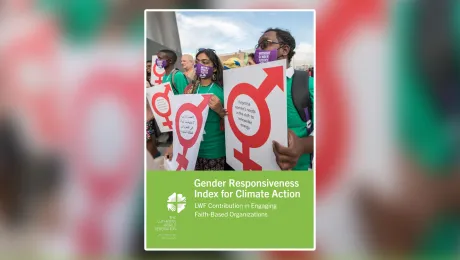LWF invites proposals for small-scale youth-led climate projects in its member churches. Projects should run from July to October 2023, and proposals can be submitted until 30 April.

Climate justice is a priority advocacy issue for the LWF. Photo: LWF/Albin Hillert
Call for small-scale climate justice projects in member churches
(LWI) – The Lutheran World Federation (LWF) invites proposals for small-scale climate projects initiated and led by youth, i.e., persons aged 18 to 30. Each project should be initiated and led by young people and require an LWF member church endorsement. They can submit proposals until 30 April. Projects should run from July to October 2023.
“Climate justice is a priority advocacy issue for the LWF global communion of churches,” says Rev. Dr. Sivin Kit, Director of the Department for Theology, Mission and Justice. “We would like to encourage everyone to take responsibility for the care of creation. We also see it as a matter of intergenerational justice where young people can lead the way forward.”
Elena Cedillo, LWF Program Executive for Climate Justice, is convinced that young people can actively engage in climate action at local and national levels. “We want to empower young people to advocate for climate justice,” she says. “Also, we aim to increase awareness among member churches about the dynamics of mitigation and adaptation regarding climate change.” LWF can support project proposals with up to EUR 2,000. Young people should develop and implement projects locally along with other church and community members by reaching out to schools, youth groups and student movements.
Young people advocating for climate justice
From 2019 to 2022, the LWF supported more than 50 small-scale youth-led climate justice projects in its member churches.
Last year, Maro Maua from the Kenya Evangelical Lutheran Church partnered with a local fitness club in the coastal city of Mombasa for a “wake-up call for climate change.” It took shape as a climate duathlon, combining a cycle tour with a beach clean-up.
The beach clean-up took up the message of the United Nations Environment Assembly (UNEA) about plastic pollution in the ocean. The last session in Nairobi, Kenya, adopted a historic resolution to end plastic pollution and forge an international legally binding agreement by 2024.
In South Africa, pupils at Hermannsburg School created and managed organic gardens. The produce is used in the school’s kitchen, and some is shared with poor people in local communities. “This is not a short-term, one-off project. It will continue for the coming years,” said project leader Nathalie Hulett from the Northeastern Evangelical Lutheran Church in South Africa (NELCSA).
“These are very encouraging examples for climate action by young people,” says Cedillo. “We hope to see many more in the future and welcome project proposals from all regions.”


